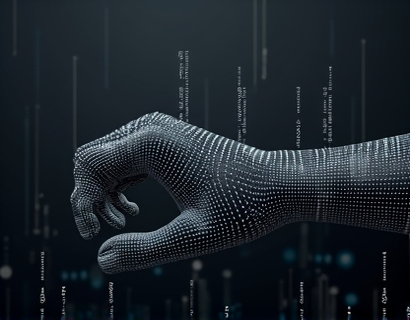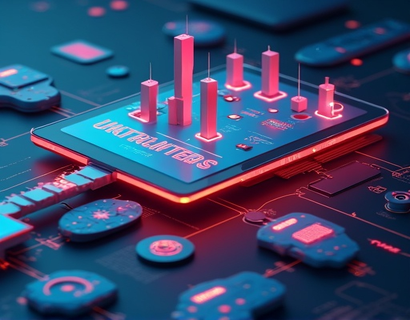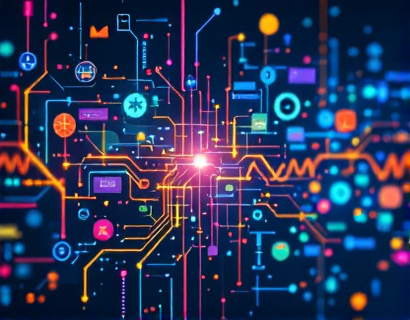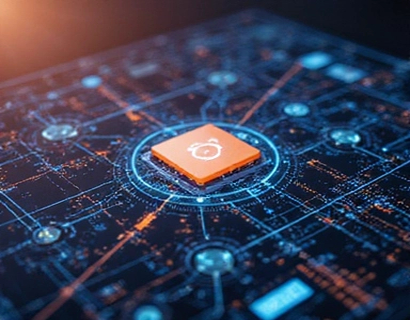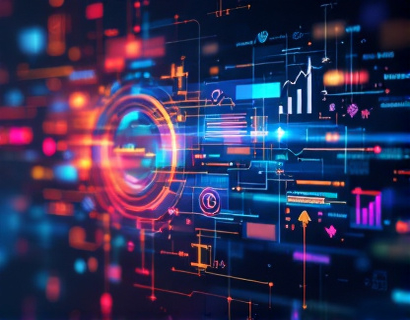Unlocking Advanced Digital Transformation: The Synergy of Crypto and AI
The intersection of cryptocurrency and artificial intelligence represents a frontier of digital innovation, where the two technologies converge to redefine app ecosystems and user experiences. This exploration delves into the transformative impact of merging these advanced technologies, offering insights for tech professionals and early adopters eager to harness their potential. The synergy between crypto and AI is not just a technological curiosity but a powerful force driving the next wave of digital transformation.
Understanding the Basics: Cryptocurrency and Artificial Intelligence
Cryptocurrency, often synonymous with blockchain technology, is a digital or virtual currency that uses cryptography for security and operates on a decentralized network. It eliminates the need for intermediaries, enabling peer-to-peer transactions with enhanced security and transparency. On the other hand, artificial intelligence encompasses a range of technologies designed to simulate human intelligence processes, including learning, reasoning, and self-correction. AI algorithms can analyze vast amounts of data, identify patterns, and make decisions with minimal human intervention.
The convergence of these technologies creates a powerful synergy. Cryptocurrency provides a secure and decentralized medium for transactions, while AI enhances the efficiency, security, and user experience of blockchain-based systems. This combination is particularly significant in the realm of app ecosystems, where seamless and secure interactions are paramount.
Enhancing Security with AI-Driven Cryptography
One of the most immediate benefits of merging AI with cryptocurrency is the enhancement of security protocols. Traditional cryptographic methods can be vulnerable to attacks, especially as cyber threats evolve in complexity. AI can analyze patterns and anomalies in real-time, detecting and mitigating potential security breaches before they occur. Machine learning algorithms can adapt to new threats, continuously improving the security of blockchain networks.
For instance, AI can be used to develop more robust consensus mechanisms, ensuring the integrity of transactions and the overall stability of the network. Smart contracts, which are self-executing contracts with the terms directly written into code, can also benefit from AI. AI can verify the conditions of smart contracts more accurately and efficiently, reducing the risk of errors and fraud.
Optimizing App Ecosystems with AI-Powered Analytics
AI-driven analytics play a crucial role in optimizing app ecosystems. By analyzing user behavior, preferences, and interactions, AI can provide deep insights that help developers and businesses refine their applications. These insights can inform decisions on feature enhancements, user interface improvements, and targeted marketing strategies.
In the context of cryptocurrency and blockchain apps, AI analytics can track transaction patterns, identify high-demand services, and predict market trends. This data-driven approach enables developers to create more user-centric applications, enhancing the overall user experience. For example, AI can recommend personalized financial services based on a user's transaction history and preferences, making the app more relevant and valuable to each individual.
Streamlining User Authentication with Decentralized Identifiers
User authentication is a critical aspect of app ecosystems, and the integration of AI and cryptocurrency offers innovative solutions. Decentralized Identifiers (DIDs) are a key component of this solution, providing users with control over their digital identities without relying on centralized authorities. AI can enhance DIDs by creating more secure and efficient identity verification processes.
AI algorithms can analyze biometric data, behavioral patterns, and other factors to authenticate users with high accuracy. This not only improves security but also simplifies the user experience, eliminating the need for complex password management. In a blockchain-based app ecosystem, AI-powered DIDs ensure that users can securely access services and transact with confidence, knowing their identities are protected.
Facilitating Decentralized Finance (DeFi) with AI
Decentralized Finance (DeFi) is a rapidly growing sector that leverages blockchain technology to provide financial services without traditional intermediaries. AI enhances DeFi by optimizing various aspects of financial operations, from lending and borrowing to trading and risk management. AI algorithms can analyze market data, predict price movements, and automate trading strategies, making DeFi more accessible and efficient.
For example, AI can improve lending protocols by assessing creditworthiness more accurately, reducing the risk of default. In trading, AI can execute complex strategies with speed and precision, capitalizing on market opportunities that human traders might miss. This synergy between AI and cryptocurrency not only democratizes financial services but also enhances the performance and reliability of DeFi platforms.
Enhancing Supply Chain Transparency with Blockchain and AI
Supply chain management is another area where the combination of blockchain and AI can drive significant improvements. Blockchain provides a transparent and immutable ledger for tracking goods from production to delivery, while AI can analyze this data to optimize logistics and ensure compliance. AI algorithms can predict bottlenecks, optimize routes, and monitor inventory levels in real-time, reducing costs and improving efficiency.
Moreover, AI can enhance traceability by identifying and verifying the authenticity of products, preventing fraud and ensuring quality. This is particularly important in industries where product origin and safety are critical, such as pharmaceuticals and food. The integration of AI and blockchain in supply chain management not only increases transparency but also builds trust among consumers and businesses.
Personalized User Experiences through AI-Driven Recommendation Systems
Personalization is a key factor in enhancing user engagement and satisfaction in app ecosystems. AI-driven recommendation systems can analyze user data to suggest relevant content, services, and products. In the context of cryptocurrency and blockchain apps, these systems can recommend financial tools, investment opportunities, and educational resources tailored to each user's needs and preferences.
For instance, an AI-powered recommendation system can suggest cryptocurrency wallets based on a user's transaction history, or recommend DeFi protocols that align with their risk tolerance and investment goals. This level of personalization not only improves the user experience but also increases the adoption and utility of blockchain-based applications.
Challenges and Considerations
While the integration of AI and cryptocurrency offers numerous benefits, it also presents challenges that must be addressed. One of the primary concerns is regulatory compliance. The decentralized nature of blockchain and the regulatory uncertainties surrounding cryptocurrency create a complex legal landscape. Developers and businesses must navigate these regulations carefully to ensure compliance and avoid legal pitfalls.
Another challenge is the technical complexity of integrating AI with blockchain systems. Developing robust and scalable solutions requires expertise in both domains. Additionally, the computational resources required for AI algorithms can be substantial, potentially impacting the efficiency and cost-effectiveness of blockchain networks. Addressing these challenges through innovation and collaboration is essential for the successful adoption of AI-enhanced cryptocurrency solutions.
Future Prospects: The Evolution of Crypto and AI
The future of cryptocurrency and AI is promising, with ongoing advancements poised to unlock even more possibilities. The development of more efficient consensus mechanisms, such as proof of stake, can reduce the computational load and make blockchain networks more compatible with AI applications. Advances in quantum computing may also impact cryptography, necessitating new security measures that leverage AI.
Furthermore, the integration of AI with other emerging technologies, such as the Internet of Things (IoT) and 5G, can create a more interconnected and intelligent digital ecosystem. The potential for AI to optimize resource usage, enhance security, and personalize user experiences will continue to drive innovation in the crypto space.
As the tech community becomes more aware of the synergies between AI and cryptocurrency, we can expect to see more collaborative projects and initiatives. This convergence will not only transform app ecosystems but also redefine the way we interact with digital services, making them more secure, efficient, and user-friendly.




